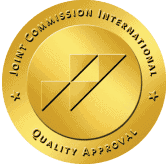You might think a glass of wine with dinner won’t hurt while you’re taking Zoloft, but this seemingly harmless combination creates a dangerous cocktail in your body. When alcohol meets this common antidepressant, it doesn’t just cancel out the medication’s benefits—it amplifies risks you probably never considered.
Both substances work as central nervous system depressants, meaning they slow down brain activity when combined. This interaction can intensify side effects like drowsiness and dizziness while potentially triggering more serious complications, including oversedation and worsening depression symptoms.
Understanding these risks isn’t just about following medication labels—it’s about protecting your mental health journey and physical safety. The effects of mixing Zoloft and alcohol extend far beyond a simple warning, impacting everything from your coordination to your recovery progress.
Zoloft represents one of the most frequently prescribed antidepressant medications in the United States. The brand name refers to sertraline, a medication that belongs to the selective serotonin reuptake inhibitor (SSRI) class of antidepressants.
Zoloft’s Primary Function
Zoloft works by blocking the reuptake of serotonin in your brain. This process increases the availability of serotonin, a crucial neurotransmitter that regulates mood, sleep, digestion, and emotional well-being. When you take Zoloft, the medication prevents your brain from reabsorbing serotonin too quickly, allowing higher concentrations to remain active between nerve cells.
Serotonin functions as both a neurotransmitter and a hormone in your body. It controls several vital processes, including:
- Mood stabilization and emotional regulation
- Sleep cycle management
- Digestive system function
- Blood clotting mechanisms
- Sexual desire and function
- Wound healing processes
Medical Uses and Applications
Healthcare providers prescribe Zoloft primarily for depression treatment. But the medication also treats several other mental health conditions through off-label use:
- Anxiety disorders
- Obsessive-compulsive disorder (OCD)
- Post-traumatic stress disorder (PTSD)
- Panic disorder
- Social anxiety disorder
How Zoloft Affects Your Brain Chemistry
The medication typically takes 4-6 weeks to reach full therapeutic effectiveness. During this period, Zoloft gradually builds up serotonin levels in your brain, creating more stable mood patterns. This process explains why you might not experience immediate relief from depression or anxiety symptoms when starting the medication.
Understanding what Zoloft is and its mechanism becomes crucial when considering alcohol consumption. Since both substances affect your brain’s chemical balance, their interaction creates significant complications that can interfere with your treatment progress and overall safety.
Can You Drink Alcohol While Taking Zoloft?
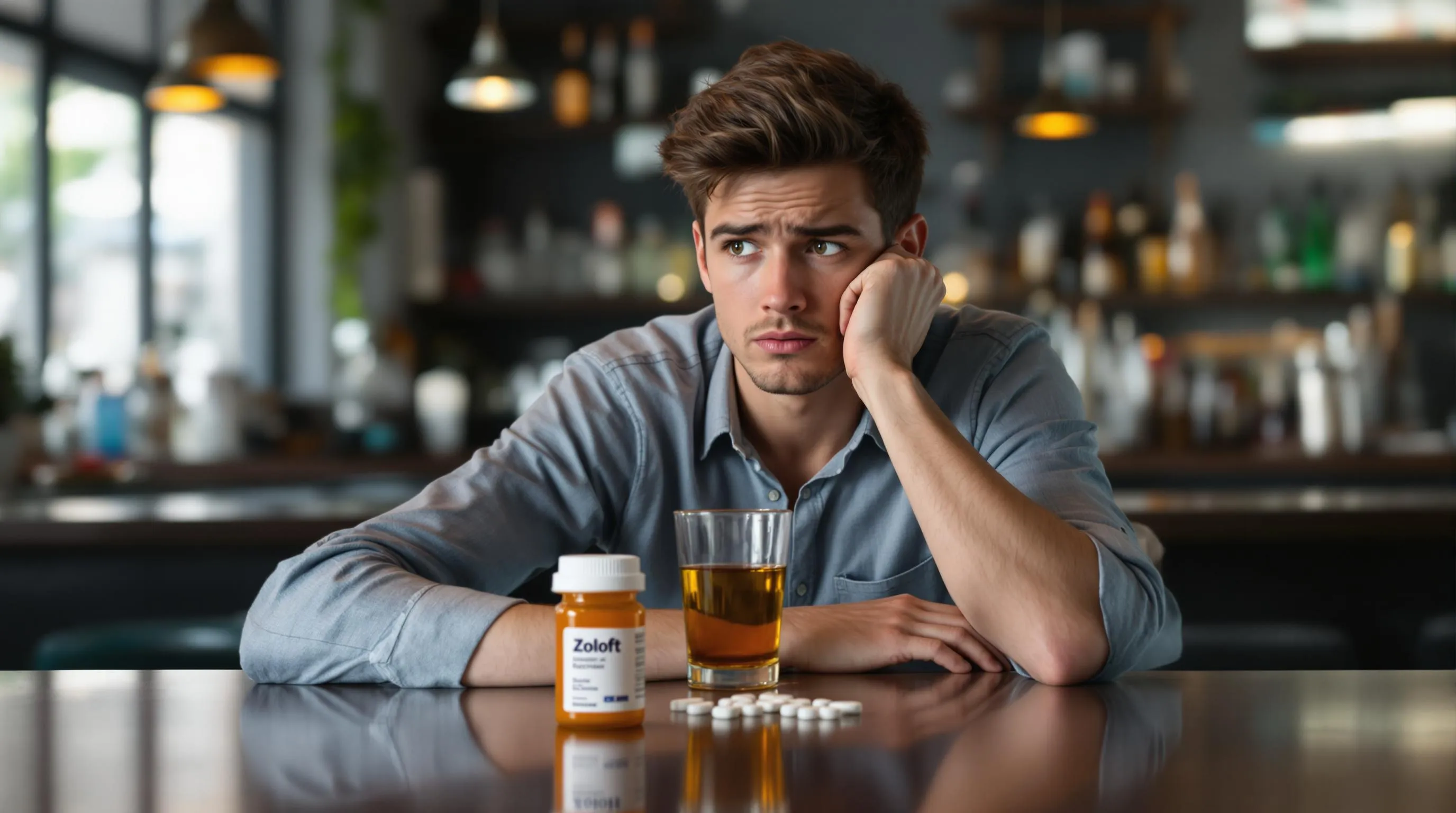
You cannot safely drink alcohol while taking Zoloft. Medical professionals strongly advise against combining these substances due to dangerous interactions that can threaten your health and safety. The combination creates unpredictable effects that vary from person to person, making it impossible to determine any safe alcohol consumption level while on this medication.
Alcohol intensifies Zoloft’s side effects in ways that can impair your daily functioning. Both substances depress your central nervous system, which amplifies drowsiness, dizziness, and coordination problems. These heightened effects increase your accident risk significantly, particularly when driving or operating machinery.
Your mental health treatment becomes compromised when you mix alcohol with Zoloft. Alcohol acts as a depressant that directly counteracts Zoloft’s therapeutic benefits. This interaction can worsen your depression and anxiety symptoms, potentially increasing suicidal thoughts and behaviors. The combination undermines the medication’s ability to regulate your serotonin levels effectively.
Serious medical complications can develop from combining alcohol and Zoloft, including:
- Serotonin syndrome from dangerously elevated serotonin levels
- Extreme oversedation leading to slowed breathing
- Liver damage from processing both substances simultaneously
- Memory blackouts and impaired judgment
- Gastrointestinal distress and nausea
Individual reactions remain unpredictable even with small alcohol amounts. Your body’s response to this combination can vary based on factors like your metabolism, dosage timing, and overall health status. Some people experience severe reactions from minimal alcohol consumption while taking Zoloft.
Skipping Zoloft doses to drink alcohol doesn’t eliminate the risks. The medication remains in your system for several days due to its half-life, meaning interactions can still occur even when you’ve missed doses. This practice also disrupts your treatment progress and can trigger withdrawal symptoms.
Your healthcare provider can discuss alternative strategies for social situations or stress management that don’t involve alcohol consumption while you’re taking Zoloft.
Dangerous Interactions Between Zoloft and Alcohol
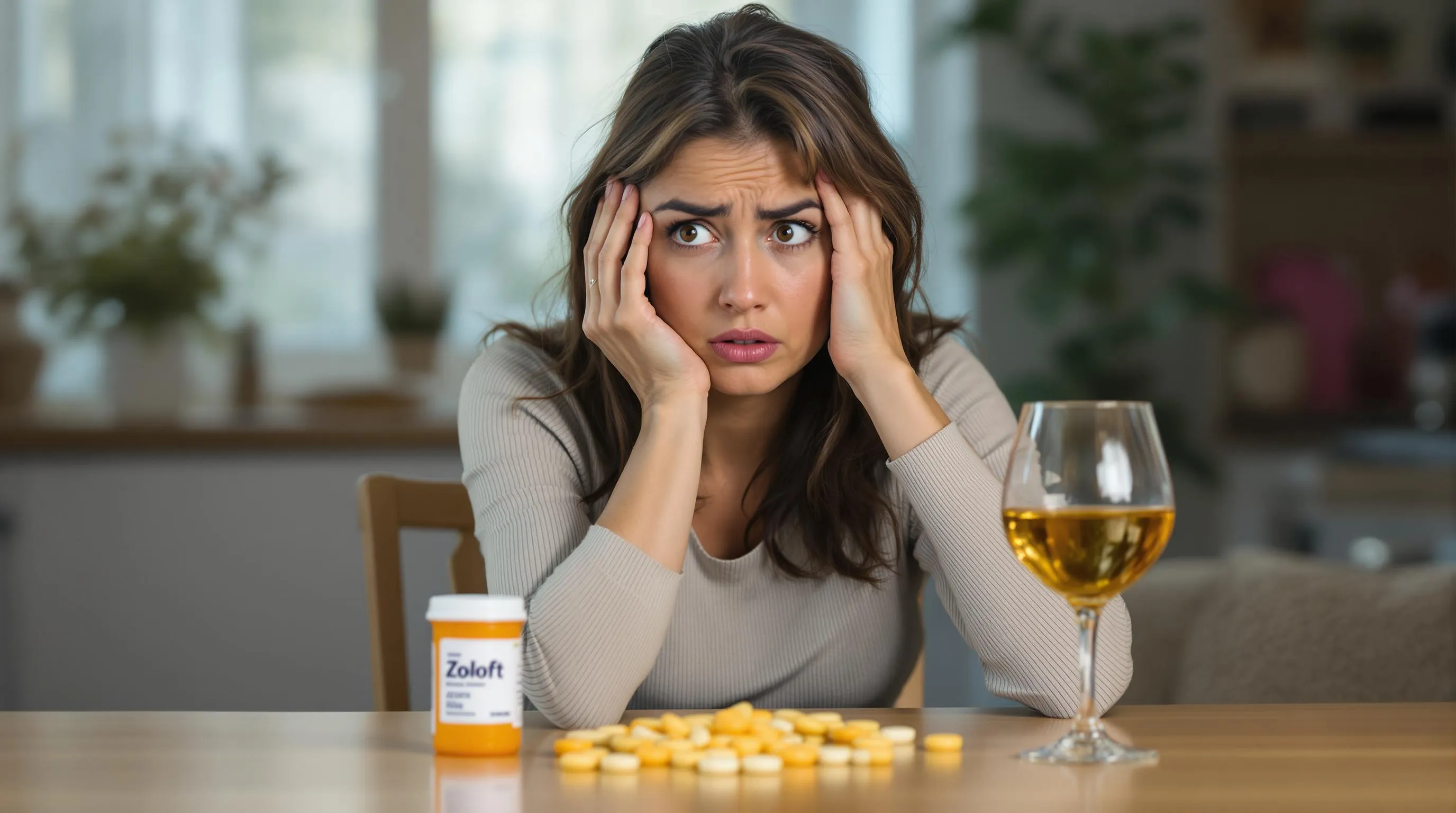
Mixing alcohol with Zoloft creates serious health risks that can compromise your treatment and endanger your wellbeing. These interactions affect multiple body systems and can lead to life-threatening complications.
Reduced Medication Effectiveness
Alcohol interferes with Zoloft’s ability to regulate serotonin levels in your brain, making the medication less effective at treating depression and anxiety. When you drink alcohol while taking Zoloft, your body struggles to maintain the steady serotonin levels needed for therapeutic benefits. This interference can worsen your symptoms and delay recovery progress, essentially undermining the treatment you’re receiving.
The combination can also affect how your liver processes both substances, altering the concentration of Zoloft in your bloodstream. This unpredictable interaction means you might not receive the full therapeutic dose your doctor prescribed, leaving your mental health symptoms inadequately treated.
Amplified Side Effects
Drinking alcohol while on Zoloft significantly intensifies the medication’s side effects, creating dangerous conditions for your daily activities. Common amplified effects include:
- Severe nausea and gastrointestinal distress that can lead to dehydration
- Extreme dizziness increasing your fall risk and injury potential
- Intense headaches that interfere with concentration and work performance
- Pronounced dry mouth affecting eating and speaking comfort
- Heightened nervousness and trembling that impacts social interactions
These amplified reactions occur because both substances affect your central nervous system, creating a compounding effect that’s more severe than either substance alone.
Serotonin Syndrome Risk
Combining Zoloft and alcohol creates a dangerous risk of serotonin syndrome, a potentially fatal condition caused by excessive serotonin levels in your brain. Both substances influence serotonin production and regulation, and their interaction can trigger this medical emergency.
Serotonin syndrome symptoms include:
| Symptom Category | Specific Signs |
|---|---|
| Cardiovascular | Rapid heart rate, high blood pressure |
| Neurological | Hallucinations, severe agitation, and confusion |
| Physical | Muscle stiffness, tremors, fever |
| Gastrointestinal | Severe nausea, diarrhea |
This condition requires immediate medical attention and can progress to coma or death if left untreated. The FDA specifically warns against alcohol consumption while taking Zoloft due to this serious risk.
Increased Sedation
Both Zoloft and alcohol act as central nervous system depressants, and their combination creates extreme sedation that poses significant safety risks. This oversedation can impair your coordination, slow your reaction time, and increase fatigue to dangerous levels.
The sedative effects manifest as:
- Severe drowsiness that affects your ability to stay alert during important activities
- Impaired motor coordination makes driving or operating machinery extremely hazardous
- Slowed breathing that can become life-threatening in extreme cases
- Memory blackouts where you remain conscious but can’t recall events
- Reduced alertness that increases accident and injury risk
This combination significantly raises your chances of falls, accidents, and poor decision-making that can lead to risky behaviors like unprotected activities or dangerous situations you wouldn’t normally encounter.
Effects on Mental Health and Depression
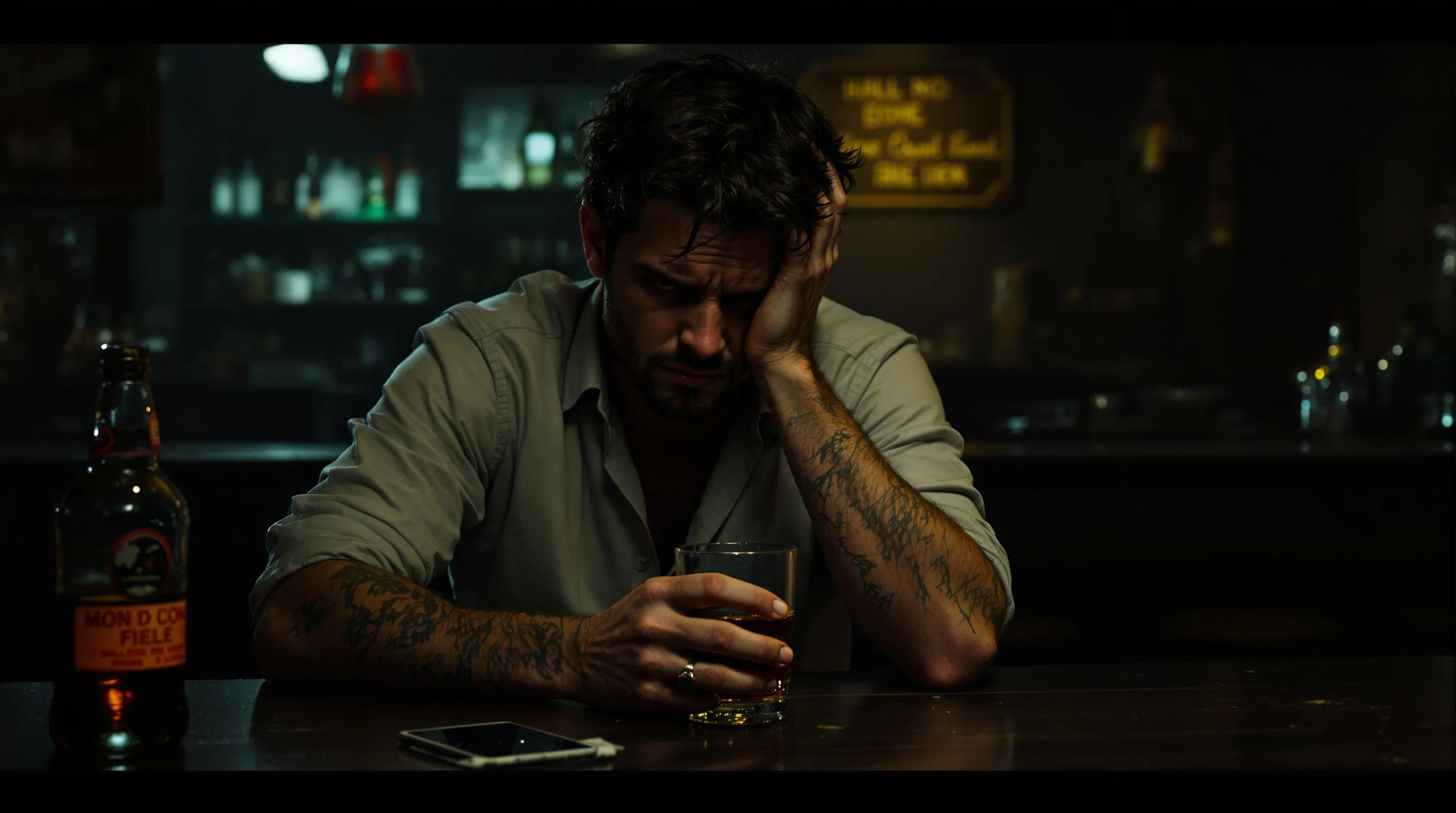
Mixing alcohol and Zoloft creates a dangerous combination that directly undermines your mental health treatment. Alcohol acts as a central nervous system depressant that worsens depression and anxiety symptoms, completely counteracting Zoloft’s therapeutic effects, designed to improve your mood and emotional stability.
Worsening Depression Symptoms
Alcohol consumption while taking Zoloft significantly intensifies depressive episodes. Your brain chemistry becomes disrupted when alcohol interferes with serotonin regulation, leading to increased feelings of sadness, hopelessness, and lethargy. This creates a counterproductive cycle where alcohol undermines the very symptoms Zoloft aims to treat.
Heightened Anxiety and Mood Instability
Your anxiety levels can spike dramatically when you drink alcohol while taking Zoloft. The combination amplifies nervousness, restlessness, and emotional volatility. Studies show that alcohol disrupts the medication’s ability to stabilize mood, leaving you more vulnerable to panic attacks and overwhelming anxiety episodes.
Increased Risk of Suicidal Thoughts
The combination of alcohol and Zoloft poses serious risks for suicidal ideation and behavior. Alcohol’s depressant effects compound with potential medication side effects, creating a dangerous mental state. Medical professionals report that patients who mix these substances face significantly higher rates of suicidal thoughts compared to those who abstain from alcohol during treatment.
Compromised Treatment Effectiveness
Your Zoloft treatment becomes less effective when alcohol interferes with the medication’s mechanism. Alcohol disrupts serotonin regulation in your brain, preventing the medication from reaching its full therapeutic potential. This means your depression and anxiety symptoms remain inadequately treated, prolonging your recovery timeline and potentially requiring dosage adjustments or alternative treatments.
Cognitive and Emotional Impairment
Drinking alcohol while on Zoloft impairs your cognitive function and emotional processing abilities. You may experience:
- Confusion and difficulty concentrating
- Memory problems and blackouts
- Impaired judgment and decision-making
- Emotional numbness or extreme mood swings
- Difficulty processing traumatic experiences or stressful situations
Self-Medication Risks
Many individuals with depression use alcohol as a form of self-medication, creating a dangerous pattern when combined with Zoloft. This behavior increases your risk of developing alcohol dependency while simultaneously reducing your medication’s effectiveness. The temporary relief alcohol provides quickly transforms into worsened depression and increased anxiety once the effects wear off.
Zoloft remains active in your system for 5 to 6 days after your last dose. This elimination period determines when it’s safer to consume alcohol without dangerous zoloft and alcohol interactions.
Understanding Zoloft’s Half-Life
Sertraline has a half-life of approximately 26 hours, meaning your body eliminates half the medication within this timeframe. Complete elimination typically requires 5 to 6 elimination half-lives, which equals roughly 130 to 156 hours or about 6 days.
| Timeline | Zoloft Concentration | Risk Level |
|---|---|---|
| 24 hours | 50% remaining | Very High |
| 48 hours | 25% remaining | High |
| 72 hours | 12.5% remaining | Moderate |
| 5-6 days | <3% remaining | Low |
Risks of Drinking Before Complete Elimination
Alcohol with zoloft creates dangerous interactions even when you skip doses. The medication continues circulating in your bloodstream and brain tissue, maintaining its effects on serotonin levels. Drinking during this period can still trigger:
- Enhanced sedation and drowsiness
- Impaired coordination and judgment
- Worsened depression symptoms
- Increased risk of serotonin syndrome
Factors Affecting Elimination Time
Several variables influence how long zoloft and drinking interactions remain dangerous:
Dosage strength affects elimination duration. Higher doses (100mg to 200mg daily) may require additional days for complete clearance compared to lower doses (25mg to 50mg daily).
Individual metabolism varies significantly between people. Age, liver function, kidney health, and genetic factors all impact how quickly your body processes sertraline.
Duration of treatment influences elimination patterns. Long-term users may experience slower clearance due to medication accumulation in tissues.
Medical Supervision Requirements
Healthcare providers recommend waiting at least one full week after discontinuing Zoloft before consuming alcohol. This conservative approach accounts for individual variations in metabolism and ensures maximum safety.
Never attempt to time alcohol consumption around missed doses or gradual dose reductions. Can you drink on zoloft becomes a definitive “no” regardless of timing adjustments, as the medication’s presence in your system maintains interaction risks.
Contact your prescribing physician before making any changes to your medication schedule or alcohol consumption plans. They can provide personalized guidance based on your specific dosage, treatment duration, and individual health factors.
Why People Mix Zoloft and Alcohol Despite the Risks
People combine alcohol and Zoloft for several reasons, even though medical professionals strongly discourage this dangerous practice. Understanding these motivations helps explain why this risky behavior persists even though clear warnings about zoloft and alcohol interactions.
Social and Coping Mechanisms
Many individuals continue drinking alcohol while taking Zoloft because they use alcohol as a social lubricant or stress-relief mechanism. You might find yourself in social situations where alcohol consumption feels expected or necessary for participation. Some people believe they can manage small amounts of alcohol without significant interference with their medication, underestimating the unpredictable nature of drug interactions.
Depression and anxiety symptoms often drive people to self-medicate with alcohol, creating a problematic cycle. You may experience difficulty adhering to complete alcohol abstinence recommendations during treatment, particularly when dealing with intense emotional distress. This pattern becomes especially concerning since alcohol can worsen the very symptoms Zoloft aims to treat.
Common Misconceptions About Safety
Several dangerous misconceptions contribute to alcohol and zoloft mixing behaviors:
- Timing myths: Some people incorrectly believe skipping Zoloft doses before drinking eliminates interaction risks
- Quantity assumptions: Others think consuming only small amounts of alcohol won’t cause problems
- Tolerance beliefs: Certain individuals assume their body can handle both substances simultaneously
- Gradual exposure: Some attempt to “build tolerance” by slowly increasing alcohol consumption while on medication
Risk Factors and Statistics
| Risk Category | Details |
|---|---|
| CNS Depression | Both substances slow brain activity, intensifying sedation effects |
| Serotonin Syndrome | Rare but potentially fatal condition from excessive serotonin levels |
| Liver Strain | Combined processing burden increases toxicity risks |
| Mental Health Deterioration | Alcohol counteracts Zoloft’s therapeutic benefits |
Why Complete Avoidance Remains Essential
Medical advice consistently emphasizes avoiding alcohol completely while taking Zoloft because even minimal consumption can trigger unpredictable interactions. You cannot predict how your individual metabolism, dosage strength, or current mental state might affect the combination’s impact. The sedative effects of both substances compound dangerously, creating risks for accidents, memory blackouts, and severe oversedation.
The interaction between zoloft and drinking extends beyond immediate physical effects. Alcohol consumption can increase suicidal thoughts and behaviors, particularly concerning for individuals already managing depression or anxiety. Your treatment progress may suffer significantly when alcohol interferes with Zoloft’s serotonin regulation mechanisms.
Getting Help for Substance Use Issues
Recognizing problematic patterns with alcohol and Zoloft represents the first step toward recovery. Approximately 40% of people taking antidepressants like Zoloft experience concurrent alcohol use issues, making professional intervention essential for safe treatment outcomes.
Warning Signs You Need Professional Help
You face increased risks when these behaviors emerge:
- Drinking even though medication warnings – Continuing alcohol consumption while aware of Zoloft interactions
- Using alcohol to enhance medication effects – Attempting to amplify antidepressant benefits through drinking
- Timing alcohol around missed doses – Skipping Zoloft to drink or drinking when doses are forgotten
- Experiencing withdrawal symptoms – Developing physical dependence on either substance
- Escalating consumption patterns – Increasing alcohol intake while maintaining Zoloft therapy
Treatment Options for Dual Substance Issues
Professional treatment facilities offer specialized programs addressing both Zoloft dependency concerns and alcohol use disorders. Dual diagnosis treatment proves most effective, with success rates reaching 60-70% when both conditions receive simultaneous attention.
Inpatient Treatment Programs
- Provide 24/7 medical supervision during withdrawal
- Monitor medication adjustments safely
- Address underlying mental health conditions
- Offer structured recovery environments
Outpatient Counseling Services
- Support continued antidepressant therapy
- Develop coping strategies for social drinking pressure
- Process trauma or stress contributing to substance use
- Maintain work and family responsibilities during treatment
Medical Supervision During Recovery
Healthcare providers guide safe medication transitions when alcohol use disorders complicate Zoloft treatment. Tapering schedules prevent dangerous withdrawal symptoms while maintaining mental health stability.
Medical professionals monitor liver function, serotonin levels, and cardiovascular health throughout recovery. This supervision becomes critical since both substances affect similar brain chemistry pathways.
Building Support Networks
Recovery communities provide ongoing accountability for individuals managing both mental health medication and alcohol concerns. Support groups specifically address prescription medication misuse alongside alcohol dependency.
Family education programs help loved ones understand the complexity of mixing antidepressants with alcohol. These resources create informed support systems that recognize warning signs and encourage professional treatment engagement.
Contact specialized treatment centers immediately if you’re experiencing severe symptoms like confusion, rapid heart rate, or memory blackouts from mixing alcohol with Zoloft. Emergency intervention prevents potentially fatal complications while establishing pathways toward comprehensive recovery.
Common Questions
Many people taking Zoloft have specific concerns about alcohol consumption and medication interactions. These frequently asked questions address the most critical safety considerations and medical guidance.
What happens if you drink alcohol on Zoloft?
Drinking alcohol while taking Zoloft triggers multiple dangerous reactions in your body. Alcohol intensifies Zoloft’s side effects significantly, causing severe drowsiness, extreme dizziness, and impaired coordination that makes driving and daily activities unsafe. The combination creates heightened sedation that can lead to memory blackouts and dangerous falls or accidents.
Your mental health symptoms worsen when you mix alcohol and Zoloft. Alcohol acts as a central nervous system depressant, counteracting Zoloft’s therapeutic benefits and potentially triggering increased depression, anxiety, and suicidal thoughts. This combination reduces the medication’s effectiveness in treating your condition, prolonging your recovery time.
The most serious risk involves serotonin syndrome, a potentially life-threatening condition. Both substances affect serotonin levels in your brain, and their combination can create dangerously high concentrations. Symptoms include rapid heartbeat, hallucinations, muscle stiffness, confusion, and agitation requiring immediate medical attention.
| Risk Category | Specific Effects |
|---|---|
| Physical Side Effects | Severe drowsiness, extreme dizziness, nausea, headaches, diarrhea |
| Mental Health Impact | Worsened depression, increased anxiety, suicidal ideation |
| Serious Complications | Serotonin syndrome, oversedation, memory blackouts, liver strain |
| Safety Risks | Impaired judgment, coordination problems, accident-prone behavior |
Can I skip Zoloft for a day to drink?
Skipping your Zoloft dose to consume alcohol creates additional health risks and doesn’t eliminate the dangers of mixing these substances. Zoloft remains active in your system for 5-6 days after your last dose due to its 26-hour half-life, meaning alcohol can still interact dangerously with the medication even when you’ve missed a dose.
Missing Zoloft doses reduces the medication’s effectiveness and can trigger withdrawal symptoms including dizziness, flu-like symptoms, and brain zaps. Inconsistent medication levels in your bloodstream compromise your mental health treatment and can worsen your depression or anxiety symptoms.
Your healthcare provider must supervise any changes to your Zoloft regimen. They can provide personalized guidance about safely managing both your medication and alcohol consumption based on your specific medical history, dosage, and treatment goals. Never alter your medication schedule without professional medical consultation, as this decision requires careful evaluation of your individual risk factors and treatment needs.
Medical professionals emphasize that the solution to alcohol and Zoloft concerns isn’t skipping doses but rather addressing the underlying desire to drink while managing your mental health condition through comprehensive treatment approaches.
